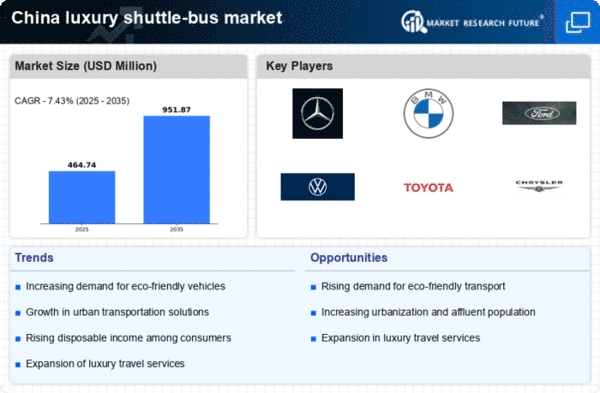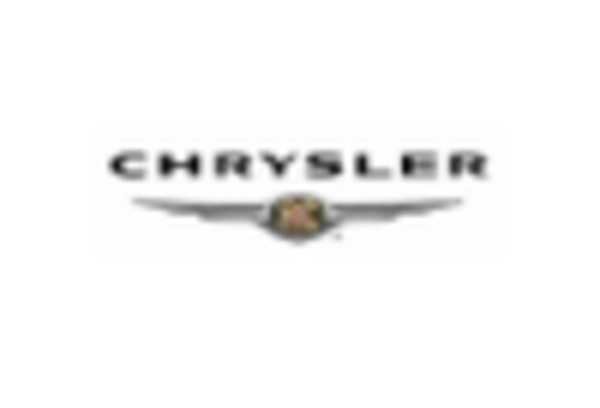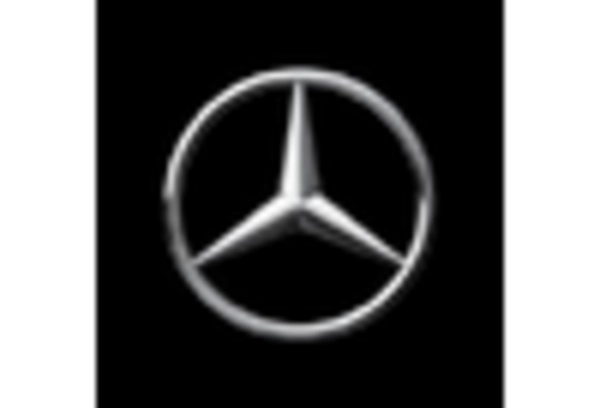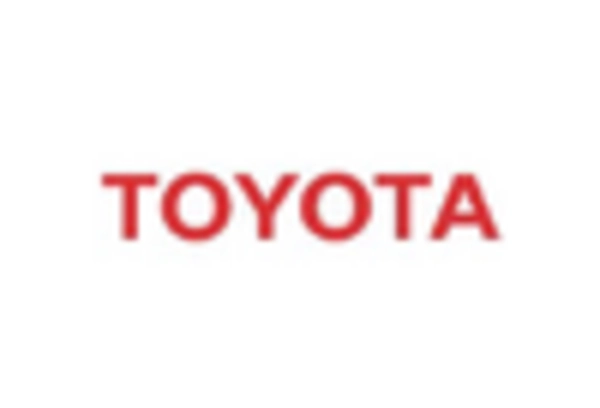Corporate Travel Growth
The expansion of corporate travel in China significantly influences the luxury shuttle-bus market. As businesses grow and international partnerships increase, the need for reliable and upscale transportation for executives becomes paramount. Companies are increasingly investing in luxury shuttle services to ensure their employees travel in comfort and style. This trend is reflected in the rising expenditure on corporate travel, which has seen an annual growth rate of approximately 10% in recent years. The luxury shuttle-bus market stands to gain from this corporate demand, as organizations prioritize high-quality transport solutions for their workforce, enhancing productivity and employee satisfaction.
Increasing Urbanization
The rapid urbanization in China is a pivotal driver for the luxury shuttle-bus market. As cities expand and populations grow, the demand for efficient and comfortable transportation options rises. Urban centers are witnessing a surge in affluent individuals who prefer luxury travel solutions. This demographic shift is likely to propel the luxury shuttle-bus market, as these vehicles offer a blend of comfort and convenience. According to recent data, urban areas in China are expected to account for over 70% of the population by 2030, indicating a substantial market potential. The luxury shuttle-bus market is poised to benefit from this trend, as more individuals seek premium transportation alternatives to navigate congested urban landscapes.
Rising Disposable Income
The increase in disposable income among the Chinese population is a significant factor propelling the luxury shuttle-bus market. As more individuals experience financial growth, their spending power on luxury services, including transportation, rises. This trend is particularly evident in urban areas, where the middle and upper classes are expanding. Data suggests that disposable income in urban China has increased by over 50% in the last decade, leading to a greater willingness to invest in premium travel experiences. The luxury shuttle-bus market is well-positioned to capitalize on this trend, as affluent consumers seek out high-quality transportation solutions that reflect their lifestyle choices.
Enhanced Customer Experience
The luxury shuttle-bus market is driven by the increasing emphasis on customer experience in transportation services. Companies are recognizing that providing a superior travel experience can differentiate them in a competitive market. Features such as plush seating, onboard entertainment, and personalized services are becoming standard in luxury shuttle offerings. This focus on customer satisfaction is supported by Market Research Future indicating that 80% of consumers are willing to pay more for enhanced experiences. The luxury shuttle-bus market is adapting to these expectations, ensuring that services not only meet but exceed customer demands, thereby fostering loyalty and repeat business.
Government Infrastructure Investments
Government investments in transportation infrastructure are a crucial driver for the luxury shuttle-bus market. In recent years, China has allocated substantial funds to improve public transport systems, including roads and transit hubs. This investment enhances the overall travel experience and encourages the adoption of luxury shuttle services. Improved infrastructure facilitates smoother operations for shuttle services, making them more appealing to consumers. The luxury shuttle-bus market is likely to benefit from these developments, as enhanced connectivity and accessibility attract more users to premium transportation options.
















